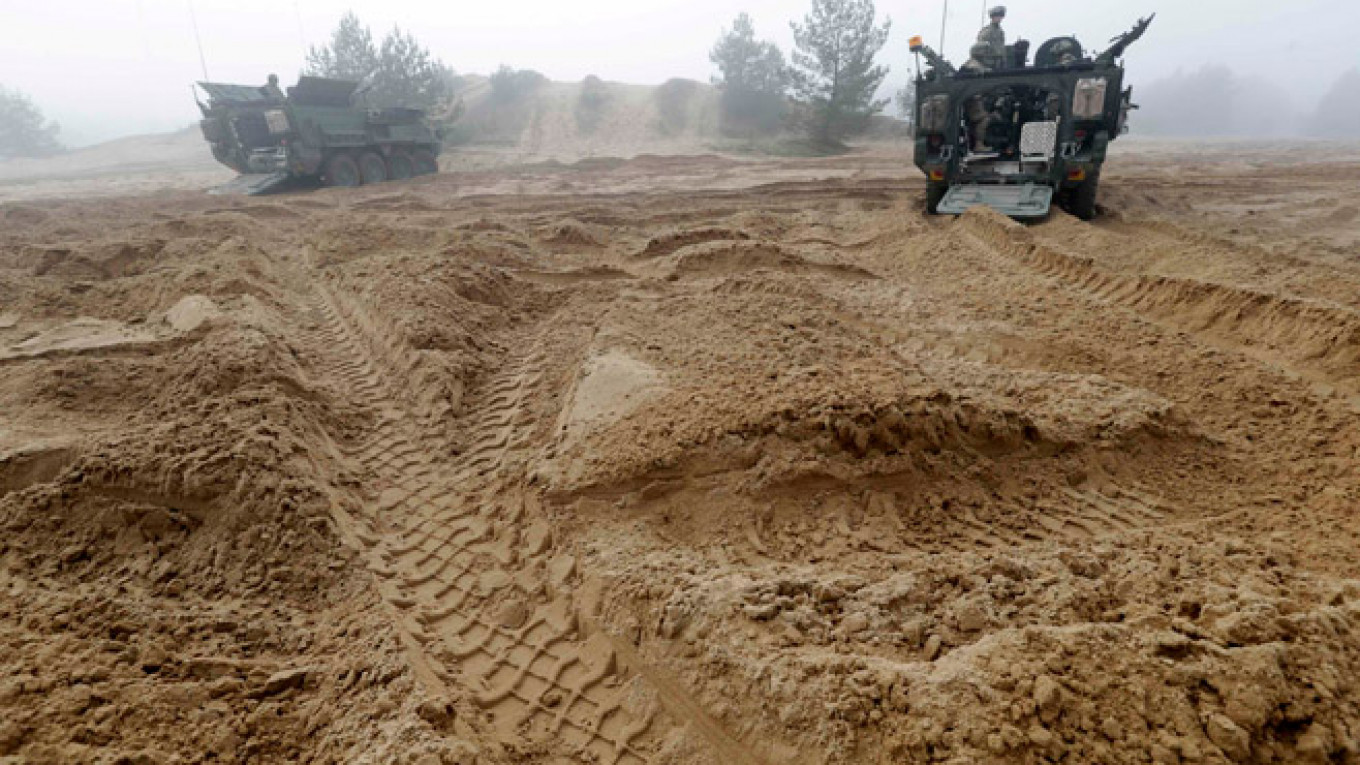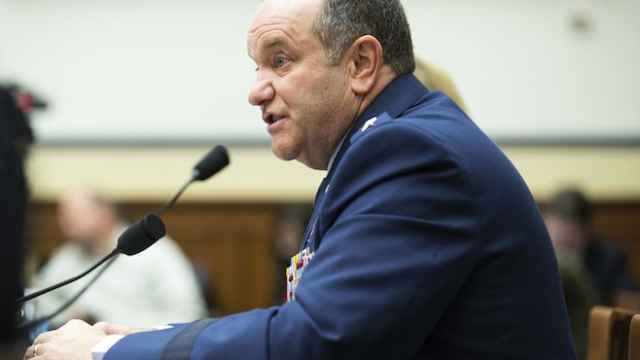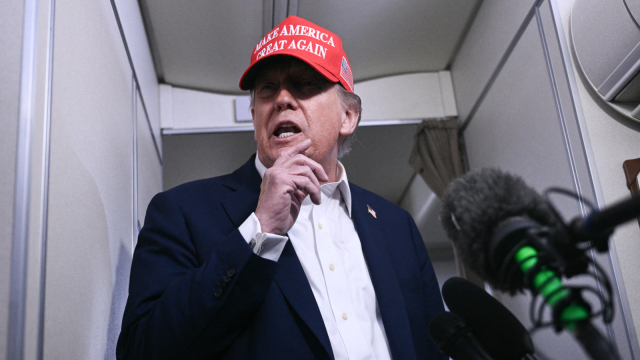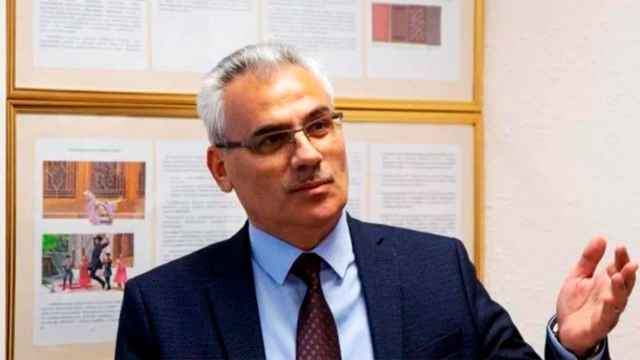Russian military expansion over the past year has electrified NATO, but the Cold War military alliance is failing to deliver on promised increases in defense spending.
Six months after pledging to hit 2 percent spending targets across the entire alliance by 2020, only those NATO members on Russia's periphery are moving to quickly boost defense budgets, while most of Western Europe continues to cut or freeze spending.
Although only half of the alliance's 28 states have published budget predictions for 2015, a study released last week by the European Leadership Network (ELN), a London-based think tank, revealed that action has lagged behind rhetoric since last September, when members agreed to reverse defense cuts and move closer to the 2 percent target at a summit in Wales.
"It comes down to who in Europe is really inclined to take an interest in defending itself against Russia or any other threat," said Keir Giles, an expert in Russian security policy at Chatham House.
Diverging Priorities?
Russia's annexation of Crimea last year, support for pro-Russian rebels in eastern Ukraine and expanded aerial and naval patrols have rattled NATO. But though the alliance sees Russia as a problem, only newer members, many of them in Eastern Europe, see the threat as serious enough to change domestic funding priorities.
Russia has been pouring vast sums of money into its military. But NATO still vastly outspends Moscow and its forces are considered to be better trained, equipped and more experienced.
NATO's European members spent a collective $269 billion on defense last year, according to data collected by the Stockholm International Peace Research Institute (SIPRI).
Russia in 2014 budgeted 3.4 percent of its gross domestic product, or 2.5 trillion rubles (around $70 billion, adjusting for exchange rate volatility), on defense, the head of the State Duma's defense committee, Admiral Vladimir Komoyedov, said in October, adding that 2015's budget could reach as high as 4.2 percent of Russian output.
Old NATO Versus New NATO
Anemic economic growth and efforts to cut spending amid high public debt in Western Europe have dampened calls to fund against a resurgent Russian threat.
"The impetus to increase military spending in the wake of the [Ukraine] crisis and the agreements made at NATO is competing with the austerity impulse, which is still very much the dominant economic policy in Western Europe," Sam Perlo-Freeman, an analyst at SIPRI, told The Moscow Times on Monday.
According to the ELN think tank, which crunched data from publicized budget announcements, NATO's three largest European members — Britain, Germany and France — are all reducing or maintaining defense spending as a percentage of GDP this year.
Britain is reducing spending from 2.07 to 1.88 percent of GDP, or from $55 to $54 billion, while Germany is cutting spending from 1.14 to 1.09 percent of GDP, or $44.3 to $41.7 billion, according to ELN.
France has frozen its budget at 1.7 percent of GDP. Last year, Paris spent $41.2 billion on defense.
"That said, from 2016 I suspect we may see a halt in the declining trend in some countries and maybe even small increases," Perlo-Freeman said. "But unless there is a severe worsening of the situation in Ukraine, I don't see a big change in the budget trends in Western Europe," he added.
German Finance Minister Wolfgang SchКuble was quoted by the Financial Times on Monday as saying that Berlin is looking at an increase in 2016.
New NATO
The closer a nation gets to Russia historically and geographically, the more likely it is to heed NATO's call for greater defense spending, analysts said and ELN data showed.
Perlo-Freeman said even non-NATO nations close to Russia, such as Sweden, are raising their budgets in response to the Ukraine crisis and increased Russian military presence along their border.
But the former Soviet states of Eastern Europe are more zealous to reach the 2 percent benchmark. Only Estonia currently maintains defense expenditures equal to 2 percent of its GDP — though this only amounts to $461 million in actual spending.
Poland has been drastically hiking its military expenditures for a number of years, and plans to spend 1.95 percent of GDP, or $10.4 billion, in 2015.
Latvia and Lithuania are making slight increases to meet or surpass one percent of their GDP — reaching $283 and $474 million this year respectively. Romania is increasing spending from 1.4 percent to 1.7 percent, but has not announced actual spending levels.
However, Hungary and Bulgaria, which have warmer political relationships with Russia than other former Soviet satellites in Eastern Europe, are decreasing their defense budgets.
Illusory Goal?
Analysts cautioned from reading too much into defense budgets as rated by percentage of GDP, since these measurements do not give any indication of how the money is spent and if the funding is really contributing to improving NATO's overall combat capabilities.
Perlo-Freeman said that for most NATO members the rate of increase "is unprecedented in European history" for nations not actually at war.
"Another reason that nations in Western Europe are not so eager to increase spending is a question of 'can the money that is already being spent be spent more efficiently,'" he added.
Chatham House's Giles said that the 2 percent benchmark is misleading, since it doesn't actually measure how much money is being spent on things that contribute to the alliance's ability to fight a war.
He said a more useful metric is the call for 20 percent of military budgets to be devoted to procuring new equipment — another goal that many members fail to meet.
Contact the author at [email protected]
A Message from The Moscow Times:
Dear readers,
We are facing unprecedented challenges. Russia's Prosecutor General's Office has designated The Moscow Times as an "undesirable" organization, criminalizing our work and putting our staff at risk of prosecution. This follows our earlier unjust labeling as a "foreign agent."
These actions are direct attempts to silence independent journalism in Russia. The authorities claim our work "discredits the decisions of the Russian leadership." We see things differently: we strive to provide accurate, unbiased reporting on Russia.
We, the journalists of The Moscow Times, refuse to be silenced. But to continue our work, we need your help.
Your support, no matter how small, makes a world of difference. If you can, please support us monthly starting from just $2. It's quick to set up, and every contribution makes a significant impact.
By supporting The Moscow Times, you're defending open, independent journalism in the face of repression. Thank you for standing with us.
Remind me later.






